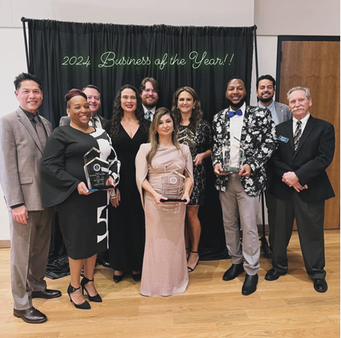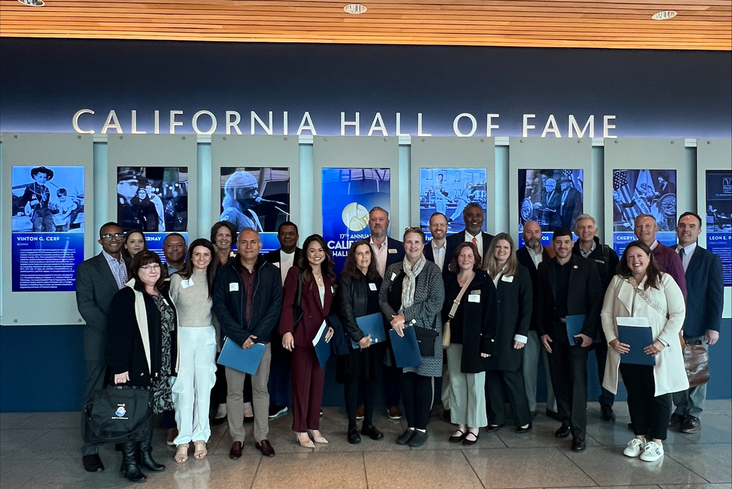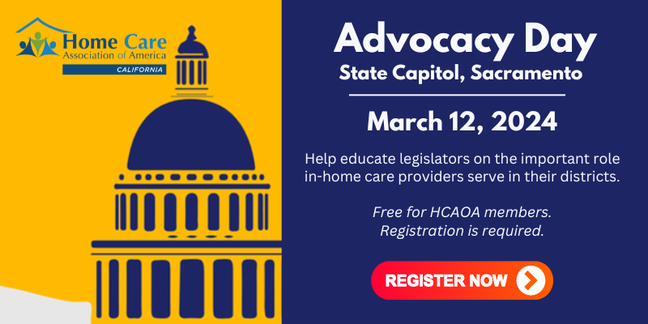- Membership Resources
- State Chapters
- Education/Events
-
Advocacy/Policy
- Home Care Workforce Crisis: An Industry Report and Call to Action
- Advocacy Fund
- State of Home Care: Industry at Crossroads
- Home Care Workforce Action Alliance
- Caring for Seniors: Value of Home Care
- Home Care by the Numbers
- Issues & Positions
- Legislative Action Network
- State Legislation Tracker
- Federal Legislation Tracker
- 2024 National Advocacy Day
- About HCAOA
- Find a Job
|
California’s new Health Care Workers Minimum Wage Law (S.B. 525), set to take effect July 1, has been delayed until October 15 at the earliest. Therefore, employers do NOT have to pay the higher minimum wage for health care facilities that was scheduled to go into effect on July 1, according to HCAOA Associate Member Attorney Bob King of Legally Nanny.
0 Comments
On July 1, 2024, California Governor Gavin Newsom signed two bills, Senate Bill 92 and Assembly Bill 2288, that amend the state’s Private Attorneys General Act (PAGA), which deputizes private parties to enforce the Labor Code on behalf of the state.
While the state minimum wage increases on January 1 of each year, local minimum wages usually increase on July 1. Employers with employees in Alameda, Belmont, Berkeley, Burlingame, Cupertino, Daly City, East Palo Alto, El Cerrito, Emeryville, Foster City, Fremont, Half Moon Bay, Hayward, Los Altos, Los Angeles (city and county), Malibu, Menlo Park, Milpitas, Mountain View, Novato, Oakland, Palo Alto, Pasadena, Petaluma, Redwood City, Richmond, San Carlos, San Diego, San Francisco, San Jose, San Leandro, San Mateo (city and county), Santa Clara, Santa Cruz, Santa Monica, Santa Rosa, Sonoma, South San Francisco, Sunnyvale and West Hollywood should doublecheck their local ordinances to make sure they are paying the latest minimum wage.
As of 7/1, California employers must have a Workplace Violence Prevention Plan in place. The state has published a model plan, which can be viewed here.
California Gov. Gavin Newsom, legislative leaders, and business and labor groups announced this week that they reached an agreement on needed reforms to the Private Attorneys General Act (PAGA). Legislation reflecting this agreement is set to be introduced next week and enactment sought by next Thursday, June 27. Once the legislation is passed and signed into law by the Governor, proponents of the PAGA ballot initiative eligible for the November ballot have agreed to withdraw their measure.
California’s new Health Care Workers Minimum Wage Law (S.B. 525) has received a lot of attention for phasing in a $25 minimum wage for many health care employees. Even as the law takes effect in less than two weeks, there are varying opinions about how it impacts home care companies in the state.
California’s Health Care Workers Minimum Wage Law: What Does It Mean for Home Care Agencies?6/12/2024 HCAOA has been following California’s newly-implemented minimum wage law (SB 525), which will increase the minimum wage for health care workers to $25 per hour in the coming years and how it impacts home care agencies. This legislation has sparked significant interest due to its implications for minimum wage adjustments for California healthcare workers. However, its impact on home care agencies may not be as widespread. Generally, the new law impacts home care agencies in two specific scenarios: subcontracting arrangements and affiliation with hospital systems.
All California members are encouraged to complete the Care Provider Management System (CPMS) Survey by May 27. This brief 4-question survey will assist the California Department of Social Services in identifying existing features and capabilities from Guardian that you would like carried over into the future system (CPMS) or new features you would like added. Your feedback will help shape the new system to better serve your needs.
Member Spotlight: Your Home Assistant Earns Business of the Year Award for City of Elk Grove, CA!5/8/2024 HCAOA member Your Home Assistant was honored with the 2024 Business of the Year award for the City of Elk Grove, CA! Congratulations on your dedication to delivering exemplary caregiving services to your local community.
California Chapter Leadership is requesting members to send letters of support for AB 2185. Assemblymember Corey A. Jackson is sponsoring AB 2185, which would prohibit Domestic Referral Agencies (DRAs) from compensating home care workers and independent contractors, which has become more and more of an issue in California, especially in recent years as the demand for services grows. AB 2185 would allow Domestic Referral Agencies to continue to provide referral services but not allow them to function as unlicensed home care organizations by compensating domestic workers who provide care to seniors on an ongoing basis without being a licensed home care organization and the licensing requirements that are required of home care organizations and protections for home care aides and seniors.
Last week, more than 40 HCAOA members and staff spent the day at the state Capitol in Sacramento asking lawmakers and members of the Newsom Administration to support a bill to protect seniors and families hiring in-home support. The main issue of discussion for the day was AB 2185, which would prohibit Domestic Referral Agencies (DRAs) from compensating home care workers and independent contractors, which has become more and more of an issue in California, especially in recent years as the demand for services grows. Even if you were not able to attend the Advocacy Day, you can still do your part by sending a letter of support to your lawmakers.
All members in California are invited to join HCAOA and your colleagues from across the state for an in-person opportunity to speak with legislators and advocate for in-home care services at the HCAOA California Chapter Advocacy Day on Tuesday, March 12, from 9:00 a.m. to 5:00 p.m.
Last week, the HCAOA California Chapter hosted its first meeting of 2024, and representatives from the Department of Social Services (DSS) were on hand to discuss upcoming updates. Pallavi Shimoda, Section Chief, Care Provider Management Branch, Home Care Services Bureau, discussed background check best practices, addressing specific questions and issues encountered during the process. Sonya Wilson, Acting Bureau Chief of Home Care Services Bureau, highlighted hiring an enforcement manager for the southern region of California and encouraged businesses to file complaints regarding non-compliance.
 McKnights Home Care recently interviewed Greg V. Sanchez Jr., Ph.D., Chair of the HCAOA California Chapter and Owner and Operations Director of Home Instead - Pasadena & Monrovia. Sanchez speaks with McKnights reporter Liza Berger about how his nontraditional background as a chemist in the pharmaceutical industry for 15 years has helped him in his role in the home care industry and shares insights into his unique approach to running a nonmedical home care business.
|
Archives
July 2024
Categories
All
Upcoming Events |
|
Phone: 202-519-2960 | 444 N. Capitol Street NW, Suite 428 | Washington, DC 20001
[email protected] | sitemap © 2024 Home Care Association of America. All Rights Reserved. | Privacy Policy | Refund Policy |
|









 RSS Feed
RSS Feed
